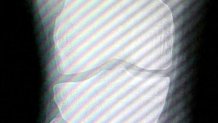The toxic chemical polychlorinated biphenyl, known as PCB, was banned in the United States in 1979, and now the city of San Diego and the San Diego Unified Port District are suing chemical giant Monsanto for manufacturing and distributing it, tying it to the heavily polluted San Diego Bay.
According to the lawsuit, Monsanto hid its knowledge of the toxicity of PCBs. Click here to read the lawsuit.
Despite being aware of them, the company sold its chemical compounds for industrial use, including shipbuilding, electrical components and paint production, according to the lawsuit.
NBC 7 Investigates took a tour of the bay with Travis Pritchard. Pritchard joined San Diego Coastkeeper in June 2010 and is now the program director. In addition to connecting and overseeing Coastkeeper's programs, Pritchard coordinates field monitoring, laboratory operations, water quality analysis, interpretations and program communications.
Coastkeeper is a nonprofit organization that according to its website “protects and restores fishable, swimmable and drinkable waters in San Diego County,” using community outreach, advocacy and education.
Pritchard said toxic PCBs lurk below the surface of San Diego Bay. “It’s basically an industrial toxic waste. In Southern California, it’s one of the worst locations," he said.
According to Pritchard, PCBs have been found in bay sediment and inside fish and other marine life living in there. “I wouldn't eat too much fish out of it and I think that's a real shame,” he said.
Local
Other cities, besides San Diego, have sued over PCB pollution. Those other PCB-contaminated areas usually fall under the Comprehensive Environmental Response, Compensation, and Liability Act of 1980. It's a federal law meant to provide cleanup of the country's most polluted sites.
But San Diego is using a claim of public nuisance in its case against Monsanto.
Monsanto officials deny pollution related to the disposal of PCBs in San Diego Bay is their financial responsibility. They sent NBC 7 Investigates a statement that said:
"Monsanto is not responsible for the costs alleged in this matter. It only sold a lawful and useful product at the time, that was incorporated by third parties, including the Navy, into other useful products. If improper disposal or other improper uses allowed for necessary clean-up costs, then these other third parties would bear responsibility for these costs. Monsanto today, and for the last decade, has been focused solely on agriculture, but we share a name with a company that dates back to 1901. The former Monsanto was involved in a wide variety of businesses including the manufacture of PCBs. They were used by manufacturers of hundreds of products primarily in electrical uses for fire safety, but also in other products such as building products and plastics to improve performance and increase safe use. The manufacture of PCBs in the United States was banned in 1979, although the former Monsanto had ceased production and selling several years before that.”
Even if San Diego wins the lawsuit, Pritchard said an overnight eradication of PCBs won't happen. He said PCBs don't break down easily and they appear in higher concentration as they move up the food chain.
“We still have this legacy contaminant that acts as a new source all the time,” he said.
CoastKeeper is involved in several PCBs cleanup sites in San Diego Bay, where posted signs warn boaters, fisherman and swimmers of contaminated areas.
“We want to get the bay back to an area where it is safe and healthy for everyone," Pritchard said.
Neither the City of San Diego nor the Port District wanted to comment on their lawsuit against Monsanto, citing "ongoing litigation."




